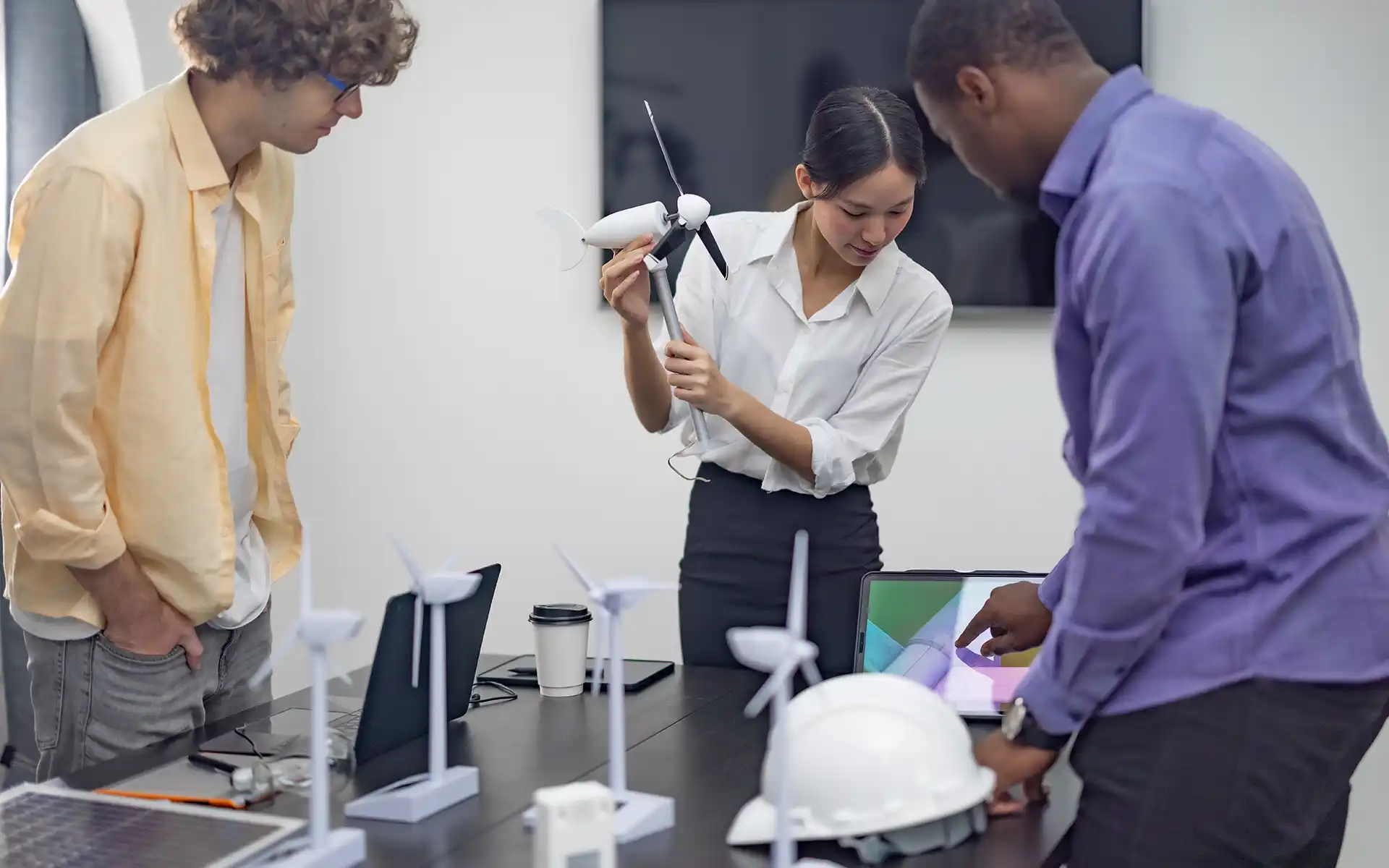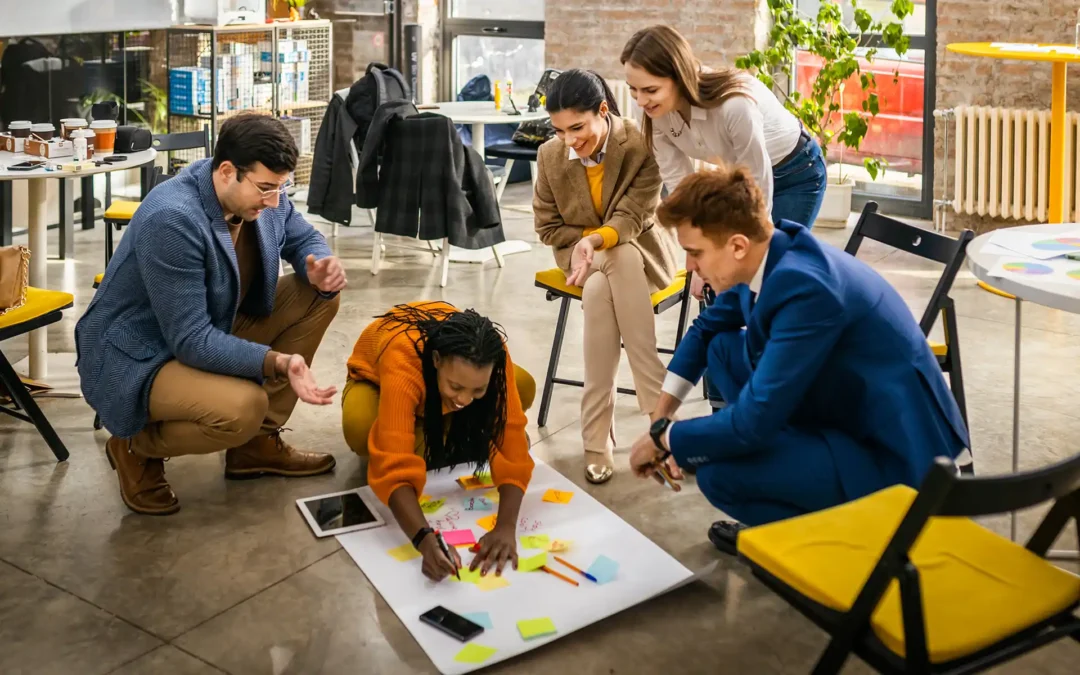“Definition of insanity: doing the same things over and over again and expecting different results” Albert Einstein
The world is changing at an ever increasing pace. However, the decisions that we make and the behaviours that we display are based on models of “reality” which are based on patterns derived from the past – which are increasingly likely to be outdated. We MUST find ways of challenging these patterns, to free up our thinking, to generate fresh and novel (i.e. creative) ideas that then feed innovation and transform individual thinking and cultures.
The terms creativity and innovation are often used and too often little understood. Every organisation claims to be innovative if only to suggest a level of credibility, and it is becoming increasingly fashionable to also claim to be creative. However – it is easy to claim, and far less easy to deliver. Such delivery can only be produced in a consistent manner if these terms are clearly understood … by the whole organisation.
Cutting through the swathes of publications on the subject, here is a simple definition:
Creativity: The generation of ideas which are both novel and useful.
The combination of novelty and usefulness is key. The generation of ideas that are simply useful, but not novel, is vital … but not creative. Indeed, the vast majority of issues are best addressed by the rapid, logical generation of useful ideas – a process which is dominated by the left-side of the brain. Education in the Western world is largely focused on the development of this left-brain; written examinations test mechanistic approaches to problem solving with classic patterns taught and (hopefully!) learnt, to be regurgitated and applied within a hushed environment. Organisations need this skill, with complicated situations and time pressures that favour those with highly developed left-brain skills. There is simply no time to sit back and reflect, ruminate, and cogitate around the situation.
Yet these are the core skills of creativity – representing an ability to look at things from different perspectives. If left-brain thinking involves doing things better, then right-brain thinking is all about doing things differently. Novelty is derived from breaking with tradition – which instantly exposes an associated risk, as novelty is an acute form of change, challenging an organisation’s real desire to break the mould. This may result in the rejection of a truly creative idea, or at least a reluctance to act.
The vast majority of problems will still demand quick, logical, problem solving skills, drawing upon past experience and knowledge of “how we do things round here”; but this new culture is also excited about the prospects of doing things better, in ways that challenge the old beliefs and lead to major step changes in performance.
The “Creative Problem Solving Cycle” provides a structure to encourage divergent (suspending judgement) and convergent (applying judgement) thinking through Problem Exploration and Idea Generation phases:
Outrageous techniques exist to encourage radical, fresh, unfettered divergent thinking including: Boundary Examination, Reversal, Superheroes, Greetings Cards, Synectics, Finger Painting, Sculpture, Bionics, Proverbs, Rolestorming, Constellations
Tempted to give it a go?
David Hall is founder and CEO of The Ideas Centre and is a dynamic speaker, through Now Training you can attend a taster session which introduces The Ideas Centre and the session is very useful in its own right.
What will you get from this taster session?
Sharing insights to problem solving techniques that are simple, easy to learn and proven to work
Inspiration and motivation
Improved decision-making
Fresh ways of thinking and problem solving
Who should attend?
Leaders of Businesses and Charities, with managers who want their organisation, people, themselves to flourish and grow.
The Ideas Centre Creativity, stimulation, provocation, sharing …
Focusing on organisational transformation, Ideas Centres are established on a regional basis, providing a forum for regular practice of creativity techniques and facilitation.
Members will have access to 6 half-day meetings each year, with 2 places per meeting for each member.
Workshops:
– Duration 3 hours each (x 6 per annum)
– Introduce and practice new creative problem solving techniques
– Train facilitators to lead creativity workshops within their own organisations
Creativity workshops will introduce and explore techniques selected from a vast range including:
Boundary Examination
Reversal
Superheroes
Greetings Cards
Synectics
Finger Painting
Sculpture
Bionics
Proverbs
Rolestorming
Constellations
Highly hands-one, participants will be provided with experience to “go it alone” – understanding the principles that under-pin the techniques sufficiently to then introduce the techniques into their own organisations via local Creativity Clubs.
Facilitators will learn the principles of improvisation – “listen, yes, commit” – quite different from traditional facilitation skills, designed to challenge traditional thinking and promote the generation of new ideas.
Member organisations will be encouraged to establish Creativity Clubs of their own – meeting on a monthly basis in the first instance, providing a vehicle for the systematic introduction of provocative thinking. Meetings will last no more than 1 hour, involving 5 or 6 members of staff for each meeting –including Problem Owner and Facilitator.
Member organisations will have access to generic outcomes of creative problem solving exercises – providing a constant stream of new thinking for perennial problems.
“David energised the organisation with a programme of keynote presentations across the UK sites during our worldwide ‘Innovation Week’, engaging and inspiring at all levels across the organisation. We are now working with David to embed Creativity Clubs in the UK marketing business, to support a systemic culture of creativity and innovation. Exciting times!”
Total UK Ltd
“Thank you – life changing – professionally and personally for the future”
Suffolk County Council
David Hall is founder and CEO of The Ideas Centre A Chartered Engineer, he holds a PhD from Cambridge University Department of Materials Science and an MBA through the Open University. Since 1984 he has worked in a range of manufacturing, service and technology transfer organisations, holding positions in engineering, marketing and manufacturing management. A passion for creativity and innovation, and a pursuit of the perfect culture, provide a common thread throughout his career to date. The challenge is clear; how to get the every best out of your staff, to truly differentiate the company on that basis of the people.







0 Comments